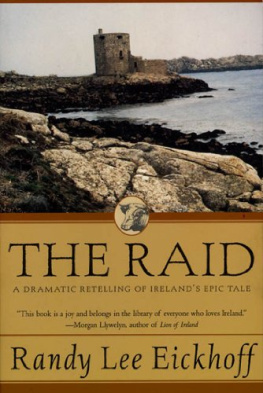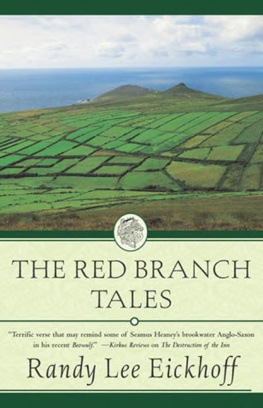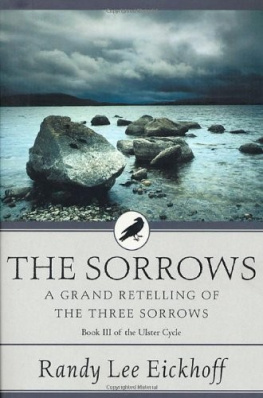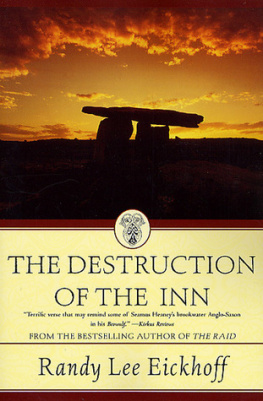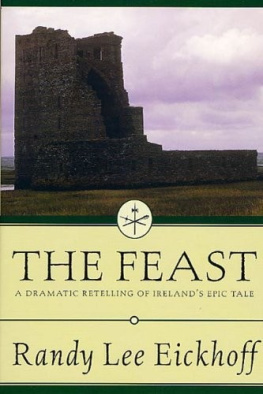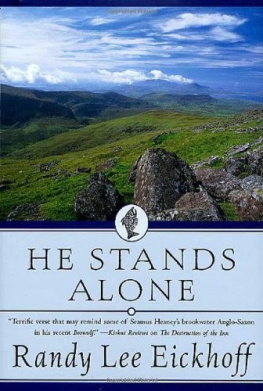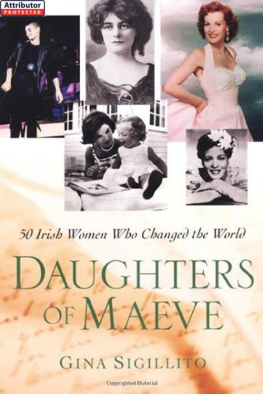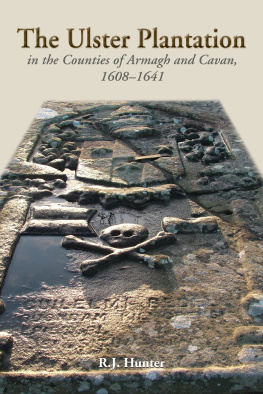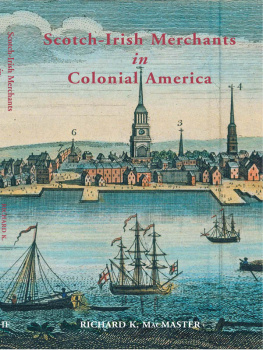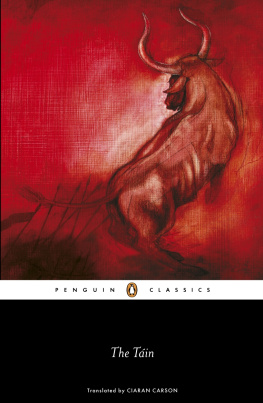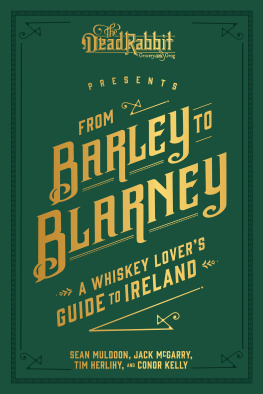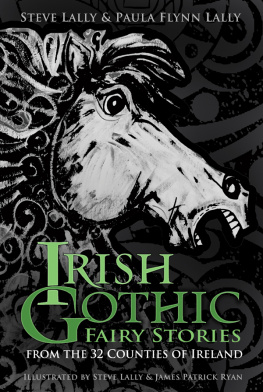
The author and publisher have provided this e-book to you without Digital Rights Management software (DRM) applied so that you can enjoy reading it on your personal devices. This e-book is for your personal use only. You may not print or post this e-book, or make this e-book publicly available in any way. You may not copy, reproduce, or upload this e-book, other than to read it on one of your personal devices.
Copyright infringement is against the law. If you believe the copy of this e-book you are reading infringes on the authors copyright, please notify the publisher at: us.macmillanusa.com/piracy.
Contents
for Jack Braden
and the sons and daughters
of
The Wild Geese

To
Michael Carey
for his wit and wisdom,
generous help,
and friendship.
go raibh maith agat

For we inhabit a wood
unknown but to our Muse,
our houses of hazel and ash
as old as the white stag
A Note on the Translation
Sed ego qui scripsi hanc historiam aut uerius fabulam quibusdam fidem in hac historia aut fabula non accommodo. Quaedam enim ibi sunt praestigia demonum, quaedam autem figmenta poetica, quaedam similia uero, quaedam non, quaedam ad delectationem stultorum.
from the Book of Leinster
This version of the Tin is not a literal translation. The various recensions alone prohibit that, but more important, the character of the original is lost in direct translation. What is poetic and lyric in Gaelic becomes turgid and stolid in English. Whereas several feminine rhymes are possible in the Gaelic, in English a consecutive feminine rhyme scheme is almost impossible to accomplish with any great success in a work like the Tin without sacrificing connotation. Consequently, I have deliberately altered the poetic elements from the original to clarify aesthetic vagaries.
Celtic bards or poets apparently altered their stories from prose narrative to lend an air of mystery or otherworldliness to their recitations. Although the mysticism of the original construction can be appreciated in the original Gaelic, direct translation into English only obfuscates the allusions even more. Consequently, I have tried to give a poetic interpretation of the allusion in addition to a translation.
I have added some images to clarify instances in which the direct use of idioms in English makes no sense at all to the modern reader. Additionally, I have added some epic similes to clarify intonations and connotations that the ancient listeners would have automatically accepted and understood.
Lastly, I have included a glossary of names and terms to assist the reader who is unfamiliar with their use.
R.L.E.
A Pronunciation Guide
T HE FOLLOWING PRONUNCIATION GUIDE is not to be regarded as being chiseled in stone; it is to be a guide only. It is impossible, however, to give the exact pronunciation of all words as stresses and accents vary widely throughout the country. The reader needs to be aware that Irish today is much different from the Irish of yesteryear. Once, a traveler in Ireland could make his way from the south to the north and encounter little difficulty understanding the various dialects along the way. Today, however, the traveler with Irish will find himself struggling to understand speakers in various sections of Ireland. The language is broken down into various dialects such as Ulster Irish and Munster Irish. The following is a composite of the main dialects based on the so-called standard or official form.
Consonants at the beginning of a word are usually pronounced the same in Irish as in English, i.e., c becomes k. Consonants in the middle of words change.
b becomes v.
c becomes g or k as in car. When it is followed by i or e it becomes key.
ch carries a guttural sound as in German, i.e., Bach.
d becomes th as in then but when used with i or e it sounds like j as in juice. When d is used with a broad vowel (a, o, or u) it sounds like the English d as in door. dh when used with a broad vowel sounds like the g in gift.
g is a soft guttural as gh or kuh.
m is usually pronounced as v except in a few cases when it appears as the last letter (i.e., Fedelm).
t appears as d but when followed or preceded by one of e or i it is usually pronounced like the ch in chip. When t is followed by a, o, or u it is pronounced like tea.
s is sh if followed or preceded by e or i.
th is aspirated as in this.
The digraph ao can be pronounced either ee or ay.
The consonants l, n, and r seem to change constantly. l with a slender vowel sounds like uhl, while at the beginning of a word it sounds like lie. n usually sounds like the English n except when it is doubled (nn), which has a very slight nasal sound. When it is followed by e or i it acquires a y sound. When nn appears at the end of a word it sounds like ng as in bing. r and rr are very similar to that found in English but sometimes it sounds like ir when it appears in the second syllable.
Short vowels are pronounced the same as in Latin while long vowels are marked with an accent and are pronounced as ah, a, e, oh, oo. The accent does not appear on capital letters as a rule although there are a few exceptions.
ai becomes ah if it appears in the first syllable such as Ailill and i if in the second or third as in Cchulainn. If the word ends in a final e with ai in the second or third syllable, the final e is pronounced.
iu is usually pronounced as oo.
ui becomes i with the u slightly rounded.
ei is pronounced like e.
NAMES
Aife: EE-fe (an exception)
Ailill: AHL-il
Aithech: AH-thax
Amargin: AV-ar-ghin
Anu: AH-NOO
Badb: bive
Bricriu: BRICK-roo
Buan: BOO-an
Buinne: BWIN-neh
Cailleach: KA-lox
Cathbad: KAFF-ah
Celtchar Mac Uthidir: KELT-har mak OO-he-der
Conall Cernach: KO-nul KAR-nox
Conchobar: KON-chov-or or KON-nor
Connacht: KON-NAXt
Cormac Connlongas: KOR-mac kon-LIN-gus
Crunniuc Mac Agnomain: KROON-yuk mak AH-hyo-vin
Cchulainn: koo-HOOL-in
Culann: KOO-lun
Croi: koo-REE
Cscraid Menn Macha: KOO-skri MEN MAX-ah
Dire Mac Fiachna: DAH-ruh mak FEE-an
Deichtine: DEkh-tin-e
Deirdre: DER-drah
Dubthach: DUV-thakh
Emer: AY-ver
Eogan Mac Durthact: O-wen mak DOOR-haht
Eochaid: OCH-i
Etarcomol: ED-ar-KO-vol
Fachtna Fathach: FAH-nah fach
Fedelm: FEDh-elm
Fedlimid: FEDh-lim-ith
Ferdiad: fer-DI-ad
Fergus Mac Roich: FUR-gus mak RO-eh
Fiacha Mac Firaba: FEE-ya-hoo mak FEER-ahv
Findchoem: FIN-gem
Finnabair: FIN-AH-ver
Findbennach: FIN-ven-nah
Fraech: FRAY-x
Gae Bolga: guy BOOL-guh
Galein: GAL-owe-in
Laeg Mac Riangabra: LOYth mak RE-yan-gahvra
Laegaire: LOYh-i-ree or leer-ee
Leborcham: LE-vor-sham
Lugaid: LOOkh-ith
Lugh: LOOH
Mac Roth: mok-ROTH
Macha: MAha
Maeve: MAY-v
Maine: MA-nee
Maine Athramail: MA-ne Ath-ra-vil
Manannn: man-NAH-un
Mrrgan: MO-ree-han
Naoise: NOY-she
Nemain: NEV-in
Ogham: OH-um
Scthach: SKAW-thash
Stanta: SHAY-dan-duh
Sualdam: SOO-ul-dav
Tuatha D Danann: tu-AH-THA day dan-UN
Uisliu: ISH-loo
PLACES
A: EE
th Gabla: awth GAV-la
Benn Etair: ben AYD-er
Next page
